Electric blues refers to any type of blues music distinguished by the use of electric amplification for musical instruments. The guitar was the first instrument to be popularly amplified and used by early pioneers T-Bone Walker in the late 1930s and John Lee Hooker and Muddy Waters in the 1940s. Their styles developed into West Coast blues, Detroit blues, and post-World War II Chicago blues, which differed from earlier, predominantly acoustic-style blues. By the early 1950s, Little Walter was a featured soloist on blues harmonica using a small hand-held microphone fed into a guitar amplifier. Although it took a little longer, the electric bass guitar gradually replaced the stand-up bass by the early 1960s. Electric organs and especially keyboards later became widely used in electric blues.

Hip Young Guitar Slinger is a compilation album of Jimmy Page's pre-Led Zeppelin studio sessions, recorded between 1962 and 1966. It was released on 4 September 2000.

Ian Andrew Robert Stewart was a Scottish keyboardist and co-founder of the Rolling Stones. He was removed from the line-up in May 1963 at the request of manager Andrew Loog Oldham who felt he did not fit the band's image. He remained as road manager and pianist for over two decades until his death, and was posthumously inducted into the Rock and Roll Hall of Fame along with the rest of the band in 1989.

William George Wyman is an English musician, best known as the bassist for the rock and roll band the Rolling Stones from 1962 until 1993, except for a one-off guest appearance in 2012. Since 1997, he has recorded and toured with his own band, Bill Wyman's Rhythm Kings. He has worked producing records and films, and has scored music for films and television.

Michael Kevin Taylor is an English musician, best known as a former member of John Mayall's Bluesbreakers (1967–69) and the Rolling Stones (1969–74). As a member of the Stones, he appeared on: Let It Bleed (1969), Get Yer Ya-Ya's Out! The Rolling Stones in Concert (1970), Sticky Fingers (1971), Exile on Main St. (1972), Goats Head Soup (1973) and It's Only Rock 'n Roll (1974).

Having a Rave Up with the Yardbirds, or simply Having a Rave Up, is the second American album by English rock group the Yardbirds. It was released in November 1965, eight months after Jeff Beck replaced Eric Clapton on guitar. It includes songs with both guitarists and reflects the group's blues rock roots and their early experimentations with psychedelic and hard rock. The title refers to the driving "rave up" arrangement the band used in several of their songs.
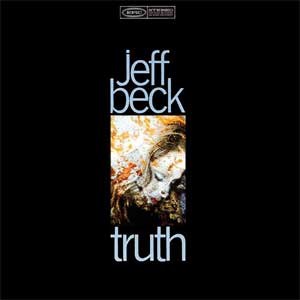
Truth is the debut studio album by English guitarist Jeff Beck, released in 29 July 1968 in the United Kingdom on Columbia Records and in the United States on Epic Records. It introduced the talents of his backing band the Jeff Beck Group, specifically Rod Stewart and Ronnie Wood, to a larger audience, and peaked at number 15 on the Billboard 200.
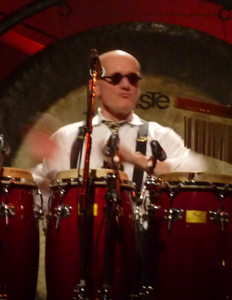
Raymond Cooper is an English musician. He is a session and road-tour percussionist who has worked with numerous musically diverse bands and artists including Peter Maffay, George Harrison, Billy Joel, Rick Wakeman, Eric Clapton, Pink Floyd and Elton John.

Metamorphosis is the third compilation album of the Rolling Stones music released by former manager Allen Klein's ABKCO Records after the band's departure from Decca and Klein. Released in 1975, Metamorphosis centres on outtakes and alternate versions of well-known songs recorded from 1964 to 1970.
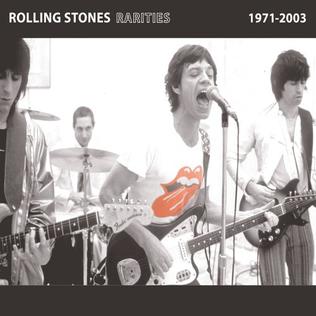
Rarities 1971–2003 is a compilation album by The Rolling Stones that was released in 2005 worldwide by Virgin Records – as well as by the coffee-chain Starbucks in North America – and features a selection of rare and obscure material recorded between 1971 and 2003. The album peaked at No. 76 on the Billboard chart.
The ARMS Charity Concerts were a series of charitable rock concerts in support of Action into Research for Multiple Sclerosis in 1983. The first event took place at the Royal Albert Hall on September 20, 1983, with subsequent dates occurring in the United States, with slightly different lineups of musicians.
Anthony "Top" Topham is an English musician and artist. He is best known as a blues guitarist and also for being the first lead guitarist of The Yardbirds. Topham left the band before they achieved mainstream popularity and was replaced by Eric Clapton, the first of three lead guitarists from the Yardbirds to gain an international reputation.
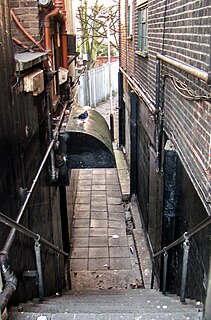
The Ealing Jazz Club was a music venue on The Broadway, Ealing, in the west of London. Opened in January 1959, it became London's first regular R&B venue with a performance by the influential Alexis Korner and Cyril Davies band Blues Incorporated.

"Little Red Rooster" is a blues standard credited to arranger and songwriter Willie Dixon. The song was first recorded in 1961 by American blues musician Howlin' Wolf in the Chicago blues style. His vocal and slide guitar playing are key elements of the song. It is rooted in the Delta blues tradition and the theme is derived from folklore. Musical antecedents to "Little Red Rooster" appear in earlier songs by blues artists Charlie Patton and Memphis Minnie.

Tal Wilkenfeld is an Australian singer, songwriter, bassist and guitarist. She has performed with artists including Jeff Beck, Prince, Eric Clapton, Herbie Hancock and Mick Jagger. In 2008, Wilkenfeld was voted "The Year's Most Exciting New Player" by Bass Player magazine readers' choice poll. In 2013, Wilkenfeld was awarded Bass Player Magazine's "Young Gun Award" by Don Was, where she performed "Chelsea Hotel" by Leonard Cohen.

Damn Right, I've Got the Blues is the seventh studio album by Blues guitarist Buddy Guy. The album has been described by Allmusic and Rolling Stone as a commercial comeback album for Guy after limited recording for the previous 10 years. In 2005 the album was reissued as Damn Right, I've Got The Blues Expanded Edition, featuring two bonus tracks.
The All-Stars were a short-lived English blues combo active in the early-mid 1960s that later evolved into a studio supergroup. Originally known as the Cyril Davies (R&B) All-Stars, their later recordings are often credited to the Immediate All-Stars due to their strong ties to Immediate Records. In 1999, the group reformed as the Carlo Little All-Stars.
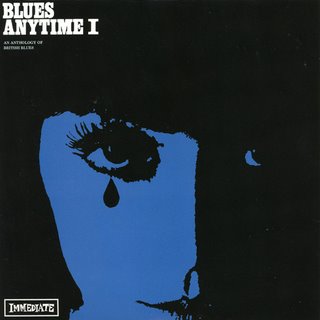
Blues Anytime: An Anthology of British Blues is a series of compilation albums featuring tracks from various British blues artists. Three volumes were released by Immediate Records in 1968, followed by Blues Leftovers in 1969.

The Yardbirds are an English rock band, formed in London in 1963. The band's core lineup featured vocalist and harmonica player Keith Relf, drummer Jim McCarty, rhythm guitarist/bassist Chris Dreja and bassist/producer Paul Samwell-Smith. The band is known for starting the careers of three of rock's most famous guitarists, Eric Clapton, Jimmy Page, and Jeff Beck, all of whom ranked in the top five of Rolling Stone magazine's list of 100 greatest guitarists. The band had a string of hits throughout the mid-1960s, including "For Your Love", "Heart Full of Soul", "Shapes of Things", and "Over Under Sideways Down".

Golden Eggs is an unlicensed compilation of previously released recordings by English rock group the Yardbirds. The LP record album was originally issued in 1975 by Trademark of Quality (TMQ), a Los Angeles-based enterprise that specialised in bootleg recordings.
















